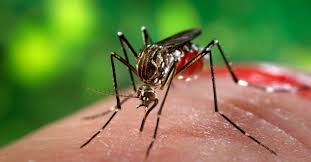A groundbreaking study conducted by researchers from the University of California-Los Angeles (UCLA) has shed light on a perplexing phenomenon: why some individuals exposed to long-term pesticide use are at a heightened risk of developing Parkinson’s disease. Published on Thursday in the journal NPJ Parkinson’s Disease, the study unveils a potential genetic explanation for this correlation, offering crucial insights into the complex interplay between genetics and environmental factors in Parkinson’s disease development.
The research, led by Dr. Brent Fogel, a professor of Neurology and Human Genetics at UCLA, focused on elucidating the underlying genetic mechanisms that predispose certain individuals to Parkinson’s disease following prolonged exposure to pesticides. Utilizing genetic data from nearly 800 California residents diagnosed with Parkinson’s disease, many of whom had endured extensive exposure to pesticides used on cotton crops, the study honed in on rare gene variants associated with lysosomal function—a process integral to cellular waste breakdown and implicated in Parkinson’s pathology.
What researchers uncovered was striking: patients with more severe forms of Parkinson’s disease, coupled with elevated pesticide exposure, exhibited an enrichment of rare gene variants linked to lysosomal activity. Importantly, these variants were found to compromise protein function, suggesting a potential mechanism by which pesticide exposure exacerbates Parkinson’s disease pathology.
Dr. Fogel elaborated on the findings, emphasizing the role of these genetic variants in modulating susceptibility to environmental stressors such as pesticides. “While the specific interactions between pesticides and the expression of these genetic variants require further study, the results suggest that in someone with such variants, long-term exposure to the cotton pesticides could lead to the buildup of toxic compounds,” he explained. This accumulation, stemming from impaired cellular waste breakdown processes known as autophagy, may contribute to the development of Parkinson’s disease over time.
Describing the phenomenon as a gene-environment interaction, Dr. Fogel underscored the latent impact of these rare gene variants, which may remain dormant until triggered by specific environmental stressors like pesticide exposure.
The implications of this study extend far beyond the realm of Parkinson’s disease research, offering a paradigmatic shift in our understanding of the intricate interplay between genetics and environmental factors in neurodegenerative disorders. As efforts to unravel the complexities of Parkinson’s disease continue, studies like this one serve as beacons of hope, guiding researchers towards innovative therapeutic strategies and personalized interventions aimed at mitigating the burden of this debilitating condition.












